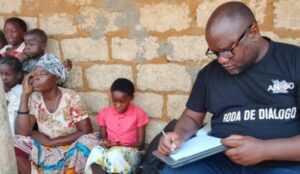Dear Mission Partners,
“Hell is breaking loose in Lebanon,” the UN Secretary-General António Guterres warned, noting that the exchanges of fire along the UN-patrolled line of separation “have expanded in scope, depth, and intensity.”
Since Monday, September 23, 2024, Israel launched an intense barrage of airstrikes across swathes of Lebanon in what was the deadliest day for the country since the 2006 war fought between Israel and Hezbollah.
Terror and despair gripped Lebanese residents as Israeli bombs killed more than 1,247 people in the last three days (from September 23 to 25), including women and children, and wounded more than 5,278 others, authorities said, as residents fled their homes, desperate to reach safety. So far, the number of displaced individuals has reached 500,000.
“It was horrifying; the missiles flew over our heads. We woke up to the sound of bombings. We didn’t expect this,” one woman said.
All these acts of violence, coming on top of years of economic turmoil, have placed the Lebanese hospital system under unprecedented pressure. Besides the physical injuries from violence, there is also a growing mental health issue that the private sector is having to cope with.
Furthermore, the crises in Lebanon have had a devastating impact on children’s mental health and ability to learn. The constant exposure to violence, conflict, and economic hardship has led to psychological distress, lack of concentration, difficulty forming attachments, behavioral problems, and educational disruption.
In the last three days, the situation for children has deteriorated significantly due to additional trauma caused by the war.
Last Monday, Lebanon’s government ordered numerous schools throughout the country to shelter people displaced by the intense Israeli raids. By Tuesday morning, most of the schools were filled beyond capacity, with many people still seeking shelter.
The state has been able to do little to address the refugee crisis, leaving municipalities and grassroots co-ordination groups to grapple with the challenges.
The Good Shepherd Sisters and their teams are part of some grassroots efforts. We cannot be other than deeply moved by the disasters that are taking place around us.
The Pope declared in April 2024: “Please. Countries at war, all of them, stop the war. Look to negotiate. Look for peace“. We are invited to play a vital role in promoting peace and reconciliation, as Saint Jean Eudes and Saint Mary Euphrasia did in their times.
We carry the weight of our desire for peace in our hearts. Moved by compassion, we are determined to take action and support our brothers and sisters in their time of need.
We are invited in the next few days to assist displaced families who have recently arrived, particularly in accessing healthcare and basic necessities.
Now more than ever, those who have lived through these dreadful experiences need to be heard and supported. Assuring them a listening ear and psychological care can perhaps offer some respite from the drastic situation into which they have suddenly been plunged.
Offering spaces where they can share their hopes and fears may, in some way, assist them to keep going in the face of the incertitude that they face as a result of their forced displacement.
It may be a drop in the ocean, yet it is something that, even in a small way, supports them towards finding hope and, with God’s help, once again rebuilding their lives.
United in mission,
Sisters of Our Lady of Charity of the Good Shepherd, Lebanon








